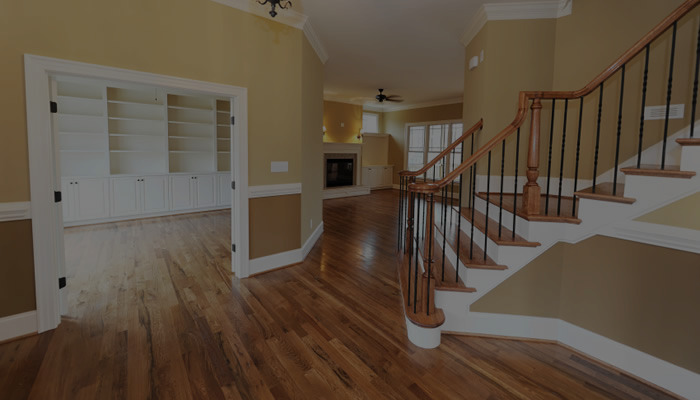When Rhode Island homeowners want an affordable alternative to hardwood, two options usually come up first: vinyl flooring and laminate flooring. Both are stylish, durable, and more cost-effective than traditional hardwood or tile. But while they may look similar at first glance, the differences between them can make one a better choice for your home than the other.
Whether you live in a Providence townhouse, a Cranston colonial, or a Warwick ranch, knowing how these flooring types compare will help you make a smarter investment.
What Is Vinyl Flooring?
Vinyl flooring has evolved dramatically in recent years. Today’s luxury vinyl plank (LVP) and luxury vinyl tile (LVT) offer realistic wood and stone looks while delivering unmatched durability.
Vinyl flooring is made from synthetic materials with a protective wear layer, a printed design layer, and a strong backing. Many modern vinyl products are 100% waterproof, making them ideal for moisture-prone areas.
Benefits of vinyl flooring include:
- Waterproof protection in kitchens, bathrooms, and basements
- Durability against scratches and scuffs from kids or pets
- Wide design variety, from rustic oak looks to sleek modern finishes
- Softer underfoot than ceramic tile
- Easy installation, especially with click-lock systems
Rhode Island homeowners often choose vinyl flooring when they want style and practicality on a budget.
What Is Laminate Flooring?
Laminate flooring is another cost-friendly alternative to hardwood. It consists of a fiberboard core topped with a photographic layer that mimics wood, stone, or tile, protected by a clear wear layer.
Laminate is known for its scratch resistance, making it popular in high-traffic homes with kids and pets. Modern versions now offer improved water resistance, though most laminates are not completely waterproof.
Benefits of laminate flooring include:
- Strong resistance to scratches and dents
- Realistic wood look at a lower price point
- Easy to clean with regular sweeping and mopping
- Affordable compared to hardwood or tile
Families across Cranston and Johnston often choose laminate for living rooms, hallways, and bedrooms where moisture is less of a concern.
Key Differences Between Vinyl and Laminate
While vinyl and laminate share similarities, their differences matter for long-term performance in Rhode Island homes.
- Water Resistance:
- Vinyl is fully waterproof, making it the better choice for basements, bathrooms, and kitchens.
- Laminate is water-resistant but can swell if exposed to standing water.
- Vinyl is fully waterproof, making it the better choice for basements, bathrooms, and kitchens.
- Durability:
- Both materials hold up well, but laminate often outperforms vinyl when it comes to resisting surface scratches.
- Vinyl is better for households where spills and moisture are frequent.
- Both materials hold up well, but laminate often outperforms vinyl when it comes to resisting surface scratches.
- Comfort:
- Vinyl has a softer, warmer feel underfoot, especially in plank and tile forms.
- Laminate can feel harder and louder without underlayment.
- Vinyl has a softer, warmer feel underfoot, especially in plank and tile forms.
- Installation:
- Vinyl planks are versatile and can be installed directly over concrete or existing floors.
- Laminate usually requires a dry, level subfloor and may not work in basements.
- Vinyl planks are versatile and can be installed directly over concrete or existing floors.
- Cost:
- Both are affordable, but laminate often comes in slightly lower.
- Vinyl’s waterproofing may make it the better long-term investment for certain areas.
- Both are affordable, but laminate often comes in slightly lower.
Best Places to Use Each Flooring Type
Choosing between vinyl and laminate often comes down to where in your home you’re installing it.
- Vinyl flooring is ideal for kitchens, bathrooms, basements, and mudrooms where water is a concern.
- Laminate flooring works well in living rooms, bedrooms, hallways, and offices where moisture is less of a risk.
For example, a Providence family renovating their basement may lean toward waterproof vinyl flooring, while a Cranston couple updating their second-floor bedrooms may find laminate the best fit.
Style and Design Options
Both vinyl and laminate offer a wide range of styles. Vinyl planks often mimic hardwood species like oak, maple, and hickory, while luxury vinyl tiles replicate ceramic or natural stone. Laminate flooring focuses primarily on wood looks but has expanded into stone and tile patterns as well.
If you want a bold, modern design that mimics high-end stone, vinyl may offer more variety. For homeowners seeking a realistic hardwood look at a lower price point, laminate remains a top choice.
Maintenance and Care
One of the biggest selling points of both vinyl and laminate is low maintenance. Rhode Island homeowners don’t want to spend hours caring for floors, especially with pets, kids, and busy lifestyles.
- Vinyl requires simple sweeping and mopping with a vinyl-safe cleaner.
- Laminate also needs regular sweeping, with damp mopping only — too much water can cause damage.
With proper care, vinyl can last 15–25 years, while laminate typically lasts 10–20 years.
The Rhode Island Advantage with Local Experts
Climate matters when choosing flooring. Rhode Island’s humidity, snow, and seasonal shifts can challenge both vinyl and laminate. That’s why working with laminate flooring contractors in Rhode Island is so important. A local expert like D&M Hardwood Flooring can evaluate your home, recommend the right product, and install it correctly for long-lasting results.
You can view examples in our work gallery, explore more insights on our blog, or learn more about us on the about page.
Which Flooring Should You Choose?
Both vinyl and laminate are excellent choices for Rhode Island homes, but the right option depends on your needs. If water resistance is your top priority, vinyl is the safer bet. If you’re looking for a scratch-resistant, budget-friendly option for drier areas of the home, laminate is a smart choice.
When you’re ready to compare styles and find the perfect fit, contact D&M Hardwood Flooring to schedule a consultation. We’ll help you weigh the pros and cons and choose a floor that matches your lifestyle and budget.

